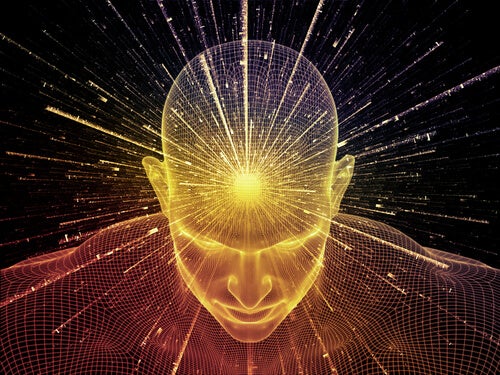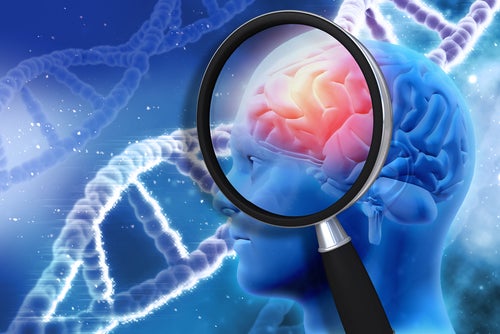Throughout history, people have wondered if the soul exists. It’s a question that’s led to great discussions and that different disciplines have tried to answer on numerous occasions.
Here, we’ll look at the question from the scientific perspective and the current challenges in this field. We’ll also examine Robert Lanza’s fascinating theory about biocentrism.
Over the years, different religious traditions have confirmed the existence of the soul. But we’re going to go beyond the spiritual and examine it from a scientific perspective. In fact, we’re going to find out how this field addresses the question today.
The soul
The soul is an intangible entity that can be split from the body. Therefore, the idea about the existence of the soul suggests a dualism of substance, or the existence of two substances: one material and one immaterial and non-physical.
One question we all tend to ask is what’s the soul for? What does it do? What are its functions in our lives? According to those who believe in it, the soul is where all our mental activity takes place. It’s where our emotions, decisions, sensations, memories, personalities, and reasoning reside. But, isn’t this all housed in the brain you might ask? Hasn’t neuroscience demonstrated that this organ is the foundation of all our mental processes?
Today, people who advocate the existence of the soul don’t deny that the brain has an influence on it. For example, the visual systems in our brains produce visual experiences in our souls. However, it’s maintained that the soul can and does carry out its own processes without any help from the brain. Furthermore, it’s suggested that this entity can be separated from the brain. So, when we die, it’s believed that the soul ‘floats away’ and its existence ensures that our mental life continues uninterrupted (Johnson, 2013).
Does the soul really exist?
The idea of the existence of the soul is associated with beliefs in life after death. Indeed, this idea of the soul is linked to the conviction of a future life. It’s also believed that our souls are guides that help us think and feel and that they’re differentiated from our bodies.
Certainly, the conception of the soul varies depending on each particular context, religion, and discipline. Over the years, the religious perspective has been the most dominant. This is mainly because souls are seen as being connected to the spiritual dimension, which has been responsible for explaining their existence.
Whether or not the ideas are associated with the spiritual, the idea of the soul is inferred, suggesting that evidence of its existence includes the mysteries associated with birth, death, different states of consciousness, memory, and imagination. In effect, it’s suggested that the soul is like a kind of force or vital impulse.
The scientific paradigm and the existence of the soul
According to the philosopher and historian of science, Thomas Kuhn, a scientific paradigm is a set of certain realizations that are universally recognized. In addition to generating models of solutions and problems in the scientific community, paradigms are subject to criticism.
The current scientific paradigm doesn’t usually recognize the spiritual dimension. In fact, it points out that there’s no need for a soul and explains life to us through equations and the activity of carbon and proteins, etc.
Therefore, while religion gives the answer to the existence of the soul from the spiritual point of view, associating it with the transcendent and incorporeal; science, if it conceives it, associates it with the material. That’s to say, it understands it as a synonym of the mind, when considered from a poetic vision. Or, it reduces it to the concept of cognition and consciousness.

Challenging current scientific theories
However, although neuroscience has made great progress in explaining the functioning of our nervous system and has tried to explain the reason for subjective experiences, they still remain a mystery. This means the problem of whether or not the soul exists is related to understanding the nature of the self.
Currently, there are different theories that challenge the scientific paradigm. One example of this is biocentrism, which highlights difficult questions about human nature. For example, they ask if the soul exists or if there’s something that goes beyond time.
This new vision of being, of the cosmos, and of reality, believes that life goes beyond atoms and particles. It explains things like quantum entanglement and the uncertainty principle. In fact, some authors point out that quantum weirdness occurs in the world on a human scale, as suggested by Gerlich et al (2011) in their article,”Quantum Interference of large organic molecules”.
Robert Lanza, an American scientist, suggested the theory of biocentrism. He considers that life and biology are essential for being, reality, and the cosmos and claims that consciousness created the universe and not the other way around. He doesn’t ignore the physical-chemical approach to the explanation of the matters of being but gives greater importance to the biological one.
For other planes of scientific knowledge, space and time are tools of the mind and associate the soul with existence. It’s a challenge that takes us away from classical intuition and suggests that a part of the mind or soul is immortal and exists outside these categories.
Investigations to prove the existence of the soul
Today, increasingly more medical researchers are interested in the immortality of the soul. In fact, the literature on the subject reached its peak with the neurosurgeon, Eben Alexander’s publication entitled: Proof from Heaven: A Neurosurgeon’s Journey into the Afterlife. In this book, the neurosurgeon recounts his apparent experience in the afterlife while he was in a coma.
Along similar lines, to put an end to the uncertainty surrounding the existence of the soul, the John Templeton Foundation funds a series of investigations into near-death experiences. It’s called The Immortality Project. One of the researchers is Sam Parnia, director of resuscitation research at New York University. His aim is to determine if near-death experiences are real. In other words, to differentiate whether its causes are physical or, on the contrary, parapsychological or metaphysical.
To achieve this, Sam Parnia intends to analyze the brain activity of patients suffering from cardiac arrests. He’s going to try to determine if neural connections are capable of causing a subjective experience. In other words, whether the patient sees themselves as out of their body and as another entity while the doctors are trying to revive them.
As you can see, certain branches of science do recognize the soul, either because they associate it with poetic connotations or reduce it to cognition. Others continue with the traditional vision of denying it. On the other hand, some current theories, thanks to new discoveries, are beginning to think of its existence as associated with time and space.
The post Does the Soul Really Exist? appeared first on Exploring your mind.



















Comments